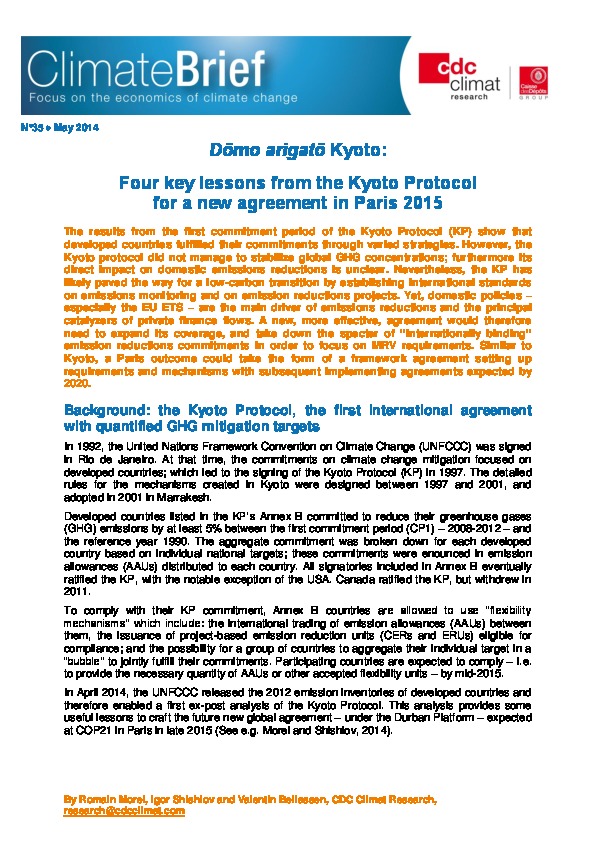Domo arigato Kyoto : Four key lessons from the Kyoto Protocol for a new agreement in Paris 2015
By Romain Morel, Igor Shishlov et Valentin Bellassen, I4CE
The results from the first commitment period of the Kyoto Protocol (KP) show that developed countries fulfilled their commitments through varied strategies. However, the Kyoto protocol did not manage to stabilize global GHG concentrations ; furthermore its direct impact on domestic emissions reductions is unclear.
Nevertheless, the KP has likely paved the way for a low-carbon transition by establishing international standards on emissions monitoring and on emission reductions projects. Yet, domestic policies – especially the EU ETS – are the main driver of emissions reductions and the principal catalyzers of private finance flows.
A new, more effective, agreement would therefore need to expand its coverage, and take down the specter of “internationally binding” emission reductions commitments in order to focus on MRV requirements. Similar to Kyoto, a Paris outcome could take the form of a framework agreement setting up requirements and mechanisms with subsequent implementing agreements expected by 2020.
